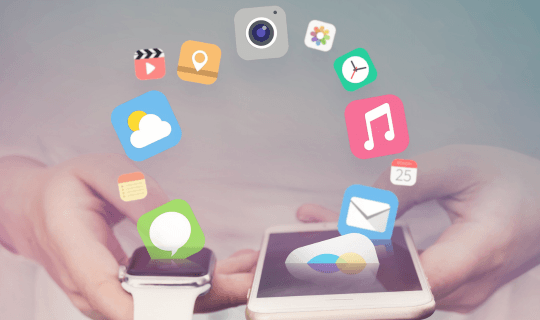In this blog post, we will delve into the realm of mobile hacking—demystifying the tactics employed by hackers, elucidating why it's crucial to stay vigilant, and above all, providing you with practical strategies and tips to strengthen the security of your digital life.

Hackers can gain unauthorised access to your mobile phone in several ways, including:
• Phishing Attacks: Phishing involves tricking you into clicking a link or opening an attachment that installs malicious software on your phone. The email, message, or website might appear to be from a legitimate source, but it's actually designed to trick you into providing personal information or downloading malware.
• Malicious Apps: Not all apps on app stores are safe. Some apps might contain malware that can take control of your phone, record keystrokes, or steal personal information. Always download apps from trusted sources and check reviews and permissions before installation.
• Unsecured Wi-Fi Networks: Public Wi-Fi networks can be risky because they often don't have robust security measures in place, making it easier for hackers to intercept the data your phone sends and receives. It's best to avoid using public Wi-Fi for sensitive activities, like online banking or logging into personal accounts.
• Spyware or Keyloggers: If someone has physical access to your device, they could potentially install spyware or keyloggers, which can record everything you type, including passwords.
• Smishing: This is a form of phishing that involves hackers sending text messages pretending to be from reputable sources. They will encourage you to click on a link, which will install malicious software on your device.
• Exploiting Vulnerabilities: Hackers often exploit security flaws in the operating system, apps, or even hardware of your phone. Keeping your device and apps updated can help mitigate this risk.
• SIM Swapping: This involves a hacker convincing your cell service provider that you've lost your SIM card and that they should transfer your number to a new one controlled by the hacker. This allows them to receive any SMS two-factor authentication codes you might receive, giving them access to your accounts.
There are numerous misconceptions or myths surrounding mobile hackers and mobile device security. Some of the most common ones include:

• Mobile Devices Don't Get Hacked: One of the most common myths is that mobile devices, particularly smartphones, are immune to hacking. In reality, mobile devices can and do get hacked. In fact, with the increasing use of smartphones for sensitive transactions, they are becoming more attractive targets for hackers.
• Only Android Devices Get Hacked: Many people believe that Android devices are the only ones that get hacked and that iPhones are immune due to Apple's strict security and app review process. While it's true that the open nature of the Android platform may make it more susceptible to malware, no system is entirely immune. iPhone has also been targeted by various attacks and can be vulnerable, especially if it's jailbroken.
• My Device Is Safe If I Only Download Apps from Official Stores: While downloading apps from official stores like Google Play or the App Store reduces the risk of malware, it's not a foolproof measure. Malicious apps occasionally slip through the review process and end up on these platforms.
• Antivirus Software Makes My Phone Invincible: Antivirus software adds a layer of security and can protect against many types of malware, but it's not a silver bullet. New threats constantly emerge, and some might not be detected by antivirus software. Besides, many forms of hacking exploit user behaviour, like phishing attacks, which antivirus software may not protect against.
• Public Wi-Fi is Safe for all Activities: Public Wi-Fi networks often lack robust security measures, making it easier for hackers to intercept data. Despite this, many people believe that these networks are safe for all activities, including online banking or accessing sensitive information.
• I Have Nothing to Hide, So I Don't Need Security: Even if you believe you have no sensitive information on your device, without proper security measures, hackers can still use your device for malicious purposes, such as part of a botnet in a larger attack, or to send spam or phishing messages to your contacts.
In summary, being aware of potential hacking methods and taking precautions to protect your mobile device is crucial to safeguard your personal and financial information and maintain your privacy. Understanding misconceptions is also important to ensure you are taking the appropriate steps to protect your mobile devices. It's essential to apply comprehensive security measures, such as regularly updating your device, downloading apps from trusted sources, avoiding suspicious links or attachments, and using secure networks for sensitive activities.



